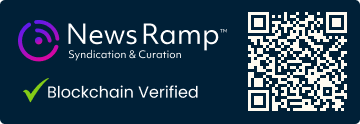AI Reshapes Recruitment Landscape, Demanding New Job Seeker Strategies

Summary
Full Article
Artificial intelligence has become an integral part of everyday life, appearing in digital assistants like Siri and Alexa, online advertising, and chatbot systems. This technological integration extends significantly into the job market, where AI now plays a major role in how individuals apply for positions and how companies evaluate potential candidates. As technology firms such as D-Wave Quantum Inc. (NYSE: QBTS) continue advancing AI capabilities, the implications for employment practices become increasingly profound.
The pervasive nature of AI in recruitment processes means job seekers must understand how automated systems screen applications. Many companies now use AI-powered tools to scan resumes, analyze cover letters, and conduct preliminary interviews through chatbot interfaces. These systems typically search for specific keywords, evaluate formatting consistency, and assess qualifications against predetermined criteria. Job applicants who fail to optimize their materials for AI screening may find their applications rejected before human review occurs, regardless of their actual qualifications.
This technological shift requires job seekers to develop new strategies for presenting their credentials. Rather than crafting applications for human resources professionals alone, applicants must now consider how AI systems will interpret their materials. This includes using relevant industry terminology, maintaining clean document formatting that scanning software can easily process, and highlighting quantifiable achievements that algorithms can recognize. The traditional approach of creative resume design may need adjustment when dealing with systems that prioritize data extraction over aesthetic appeal.
The implications extend beyond application processes to skill development requirements. As AI assumes more routine screening tasks, human recruiters may focus on evaluating candidates for roles requiring complex problem-solving, emotional intelligence, and creative thinking—areas where AI currently has limitations. Job seekers might benefit from emphasizing these uniquely human capabilities in their applications and interviews. Additionally, understanding AI systems and developing digital literacy becomes increasingly valuable across various industries.
Specialized communications platforms like AINewsWire provide information about technological advancements affecting employment markets. These resources help job seekers stay informed about how companies implement AI in their operations, including hiring practices. As artificial intelligence continues evolving, its role in employment will likely expand, making adaptation essential for career success. Job seekers who proactively develop strategies for engaging with AI systems may gain significant advantages in competitive job markets.
For HR vendors serving the talent management industry, this evolution presents both challenges and opportunities. The growing reliance on AI screening tools creates demand for solutions that help candidates navigate automated systems effectively. Vendors offering resume optimization services, AI-compatibility testing, and digital literacy training may find increased market relevance as companies continue integrating artificial intelligence into their hiring workflows. The shift toward AI-driven recruitment also underscores the need for vendors to develop products that complement rather than compete with emerging technologies.
The transformation of recruitment through artificial intelligence represents a fundamental change in how talent acquisition operates. Companies implementing these systems seek to improve efficiency and reduce bias, but the technology's limitations require careful implementation. HR vendors must stay informed about these developments to provide relevant solutions that address the evolving needs of both employers and job seekers in an increasingly automated hiring landscape.

This story is based on an article that was registered on the blockchain. The original source content used for this article is located at InvestorBrandNetwork (IBN)
Article Control ID: 226210